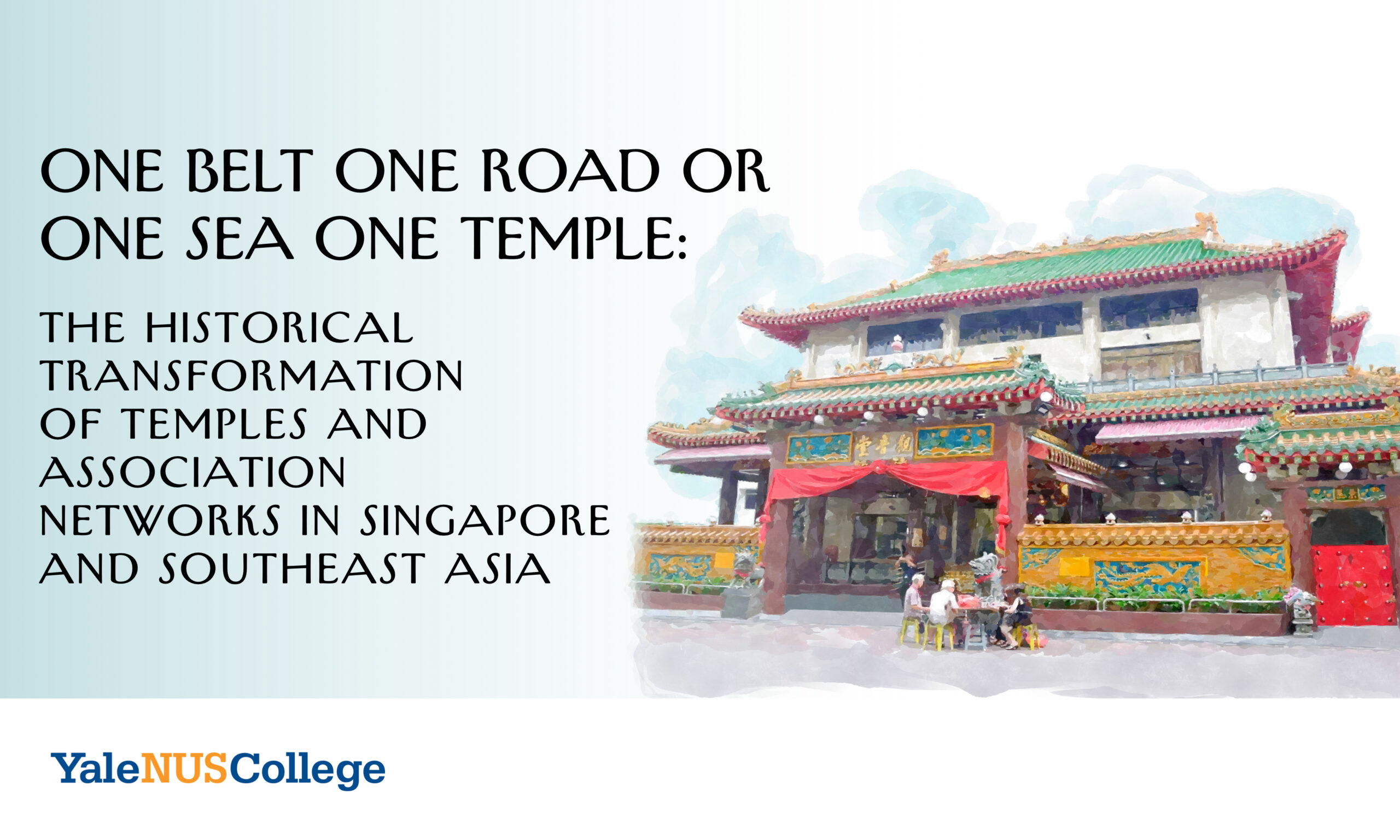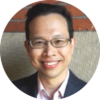


Image: Kwan Im Thong Hood Cho Temple, Singapore. Artwork by Denny Liew, ReddotAtelier.etsy.com.
Singapore developed historically into a commercial and cultural hub of central importance to the region and beyond. Chinese temples and regional and clan associations played key roles in the 19th century in establishing trade and business trust networks. These groups contributed substantially to nation building in China in the first half of the 20th century. After Singapore’s independence, temples and associations became localised and aided in the transformation of the urban built environment. In the 21st century, these networks have re-invented themselves, utilised social media and modern transportation, and generated new regional networks while rebuilding economic and cultural ties with their ancestral communities in China. Join us as Professor Kenneth Dean explores the past, present, and future roles of Chinese temples and associations in Singapore and beyond.
About the speaker
Professor Kenneth Dean
Professor of Humanities (Chinese Studies) and Kwan Im Thong Hood Cho Temple Professor, Yale-NUS College; Professor, Department of Chinese Studies, Director, Wan Boo Sow Research Centre for Chinese Culture, and Religion and Globalisation Research Cluster Leader, Asia Research Institute, National University of Singapore
Professor Kenneth Dean was born in Rotterdam. His parents were United States of America diplomats and he was raised in Taiwan (8 years) and Hong Kong (7 years). He attended Brown University and Fudan University during his undergraduate years. He later went to Stanford and Berkeley to study Chinese literature and Taoism. To deepen his understanding of Taoism, Prof Dean went to Paris to study with Kristofer Schipper, who introduced him to Taoist Master Chen Rongsheng in Tainan, Taiwan.
After his daughter was born in Paris, he spent the following year in Taiwan, and the next two years in Xiamen, Fujian, People’s Republic of China. There, Prof Dean studied the revival of popular Chinese religion and Taoist rituals in Fujian not long after the Cultural Revolution. While finishing his thesis, his son was born in the Virginia mountains. After getting his PhD, he took on a postdoctoral fellowship at U.C. Berkeley. Thereafter, he went to McGill University, where he taught for 25 years. Every year he would spend his summers in China or Southeast Asia doing fieldwork, visiting temples, collecting inscriptions, and attending rituals.
In 2015, Prof Dean moved to National University of Singapore (NUS) to be the Head of the Chinese Studies Department and the Religion and Globalisation Research Cluster Leader in the Asia Research Institute. With support from research grants from the Ministry of Education, National Heritage Board, Social Sciences and Humanities Research Council (Canada), Ministry of Culture, Community and Youth, Housing and Development Board, Singapore Chinese Cultural Centre and NUS, Prof Dean has published several books and articles on Chinese religion in Singapore. He set up the Singapore Historical GIS website to gather together data on Chinese temples and institutions that have played a key role in building Singapore from the ground up. He was appointed Raffles Professor for the Humanities from 2016-2022 and was appointed Kwam Im Thong Hood Cho Temple Professor in July 2022.
About the moderator
Dr Jack Meng-Tat Chia
Assistant Professor of History and Religious Studies, National University of Singapore
Dr Jack Meng-Tat Chia is Assistant Professor of History and Religious Studies at the National University of Singapore. He is a historian of religion whose research focuses on Buddhism and Chinese popular religion. He specialises in Buddhism in maritime Southeast Asia and has broader research interests in migration, diasporas, transnationalism, pilgrimage, and religious diplomacy. He is the author of Monks in Motion: Buddhism and Modernity Across the South China Sea (Oxford, 2020), which was awarded the 2021 EuroSEAS Humanities Book Prize and shortlisted for the 2023 Friedrich Weller Prize. This book was recently translated into Indonesian under the title Kiprah Para Mahabiksu: Agama Buddha dan Modernitas di Asia Tenggara Maritim (Karaniya, 2022), and a Chinese translation is underway. Chia is currently working on two book projects: Sisters in Dharma: A Buddhist Feminist in Postcolonial Indonesia, and Diplomatic Dharma: Buddhist Diplomacy in Modern Asia, which is supported by the 2020 Social Science and Humanities Research Fellowship awarded by the Social Science Research Council Singapore. In 2022 he was elected a Fellow of the Royal Historical Society.
Watch the full recording here:



